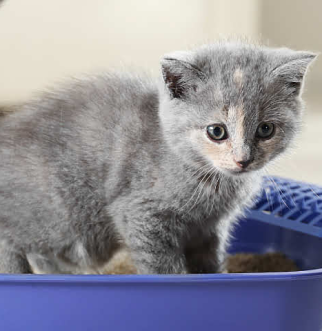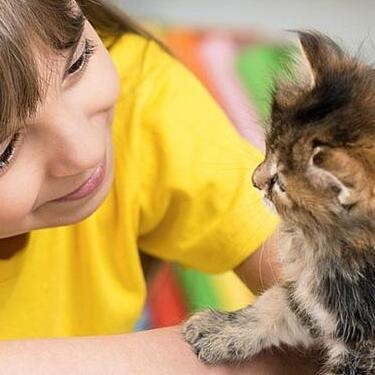
-
Find the right food for your pet
Take this quiz to see which food may be the best for your furry friend.
Find the right food for your pet
Take this quiz to see which food may be the best for your furry friend.
Featured products
 Adult 7+ Perfect Digestion Chicken, Whole Oats & Brown Rice Recipe Dog Food
Adult 7+ Perfect Digestion Chicken, Whole Oats & Brown Rice Recipe Dog FoodScience Diet's breakthrough nutrition supports ultimate digestive well-being & healthy microbiome for dogs age 7+
Shop Now Small & Mini Savory Stew with Chicken & Vegetables Dog Food
Small & Mini Savory Stew with Chicken & Vegetables Dog FoodA delicious complement to the nutrition of Science Diet Small & Mini 7+ dog food
Shop Now Adult Healthy Cuisine Roasted Chicken, Carrots & Spinach Stew Dog Food
Adult Healthy Cuisine Roasted Chicken, Carrots & Spinach Stew Dog FoodDelicious roasted chicken paired with tender vegetables in a succulent stew
Shop NowFeatured products
 Adult 7+ Tender Tuna Dinner Cat Food
Adult 7+ Tender Tuna Dinner Cat FoodWith delicious chunks in a decadent gravy
Shop Now Adult Savory Entrée Can Variety Pack Cat Food
Adult Savory Entrée Can Variety Pack Cat FoodPrecisely balanced nutrition with the delicious taste of savory minced chicken to help fuel the energy needs of cats during the prime of their life
Shop Now Adult 7+ Senior Vitality Chicken & Vegetable Stew Cat Food
Adult 7+ Senior Vitality Chicken & Vegetable Stew Cat FoodImproves Everyday Ability to Get Up & Go
Shop Now -
Dog
- Dog Tips & Articles
-
Health Category
- Weight
- Food & Environmental Sensitivities
- Urinary
- Digestive
- Joint
- Kidney
-
Life Stage
- Puppy Nutrition
- Adult Nutrition
- Senior Nutrition
Cat
- Cat Tips & Articles
-
Health Category
- Weight
- Skin & Food Sensitivities
- Urinary
- Digestive
- Kidney
-
Life Stage
- Kitten Nutrition
- Adult Nutrition
Featured articles
 Does My Pet Hate Me?
Does My Pet Hate Me?Learn tips for bonding with your pet if you've ever thought, 'My dog doesn't like me, or 'Why do I have a standoffish cat?'
Read More Why Are Dogs and Cats So Cute?
Why Are Dogs and Cats So Cute?If waggy puppy dog tails and furry kitten yawns make you swoon, you're not alone. Why are cats so cute? And, dogs too! Let's find out!
Read More Do Dogs and Cats have Belly Buttons?
Do Dogs and Cats have Belly Buttons?Learn whether cats & dogs have belly buttons like humans, what the function is, and if there are any health concerns associated with it.
Read More -


When you share a home with a feline friend, you hear many cat sounds throughout the day. And although you can easily figure out the meaning of some cat noises (circling their food dish and meowing while looking up at you, for example), it's not always that obvious. What do cat meows mean? You may simply be the pet parent of a chatty kitty. This is especially common with older furry friends, as cats become more vocal as their hearing worsens.
Here are some distinctive cat sounds and what your cat might be expressing through them.
1. Meow
Why does my cat meow so much? As a pet parent, you've likely asked yourself this many times, and you've already concluded that your cat emits a classic meow for a variety of reasons. But cats rarely meow at each other, so what is your cat trying to tell you? Cats speak to you with different meows depending on the situation:
Their Breed Is More Vocal
Some cat breeds meow more than others. Siamese, for example, famously "talk" a great deal with distinctive raspy meows. The ASPCA points out that "some breeds of cats, notably the Siamese, are prone to excessive meowing and yowling," so you may just have a loud little pal. The quiet Chartreux breed, on the other hand, rarely meows. Knowing your cat's normal helps you recognize if increased or decreased vocalizations signal problems.
They Want Something
Beyond breed, what do cat meows mean? Meows can express delight, especially when mixed with other vocalizations like trills. A typical cat meow demands something. It starts out polite, short and sweet in a moderate tone. Common meow demands include: fill my bowl, open the door, clean my litter, play with me and pet me now. Meows may become longer and more drawn out as your cat waits to be addressed. Pitch lowers as cats get more insistent and grows more strident when they feel ignored.
They're in Heat
Intact female cats meow loudly with a unique tone during estrus. These cat calls and yowls announce her receptive state and alert male cats that she's ready for romance. Spaying eliminates estrus-related cat sounds.
They're Stressed
Stressed cats meow repeatedly. Any change to your usual routine — a different work schedule, moving or adding new pets to the home — could cause your cat to meow more than usual. Health issues can also increase meowing. Cats might cry in the litter box from painful elimination. Old cats who are losing their hearing may cry loudly when they can't hear you. Increased meowing can also signal hypertension, or high blood pressure, so see your veterinarian to screen for potential health conditions.
2. Purr
Life doesn't get much better than when your cat snuggles up to you, nuzzling and purring at the end of a long day. As Trupanion notes, kittens are born blind and deaf, and they first communicate with their mom through purrs. All cats use this method throughout their lives — even with you. Pay close attention to your cat's purrs and you'll notice subtle changes in tone and vibration.
Purrs express emotion. In most cases, they mean your cat is happy and doing just fine. Cats also use purrs to calm themselves when they feel stressed, scared or in pain. Cats may even purr in their final moments. On a happier note, the frequency of vibration in cat purrs can promote bone healing. Think of purrs as a kind of feline vibrational medicine that makes cats and their humans feel better. Give your fur baby lots of love when you hear their little motor running.


Tasty Tips
3. Hiss
A cat hisses or spits when they're feeling frightened and defensive. A spit compares to a human's gasp of surprise, while a hiss draws out the warning to keep your distance. Cats may hiss at a stranger who visits your home, at someone they know but don't like or at another cat as a warning to back off. Ultimately, they're reminding everyone who the real boss is (hint: it's not you).
Cats hiss when they can't escape perceived danger, such as when they feel cornered or intimidated by another cat, human or situation. Forced handling or petting or simply staring at a fearful cat increases their fear and their hisses. So back away, stop staring and give your cat time to calm down. Otherwise, hisses could turn into growls — a threat to attack if you refuse to listen to your cat's request. Respect their need for space to silence the hisses and maintain your loving bond.
4. Yowl
If you think howling is just for dogs, think again! Any reproductively intact cat will yowl to attract a mate.
Cats that don't fit this criteria may yowl out of fear, aggression or pain, especially if trapped or injured. Older cats with cognitive disorders exhibit behaviors similar to dementia and may yowl when they become confused.
Cats also yowl to announce they've captured prey — sometimes a toy, but other times actual critters. A feline yowl demands that you check in to ensure everything is alright.
5. Chirp
Cats save chirping for special occasions. Often, your cat will chirp, or trill, to alert the household when they see a bird, squirrel or bunny outside the window. This sound can express excitement and happiness, and cats can trill and chirrup to each other. Mother cats also use a chirp to communicate with their kittens and keep them in line, according to the ASPCA.
Paying close attention to your cat's special sounds will help create an even more meaningful bond. The better you can understand their feelings and demands, the more you can provide them with everything they need to feel happy, healthy and safe.


Christine O'Brien is a writer, mom, and long-time cat parent whose two Russian Blues rule the house. Her work also appears in Care.com, What to Expect, and Fit Pregnancy, where she writes about pets, pregnancy, and family life. Find and follow her on Instagram and Twitter @brovelliobrien.
Related products
Related articles

Cats are naturally very clean and chances are your kitten will already have learned how to use the litter box from her mother before she comes to live with you.

Discover how to train your cat, starting with very basic first steps that both reward good behavior and discourage the bad.

What is the best food for an overweight cat? Learn all about weight control food for cats, including what's in it and how it works.

How do you get a cat to lose weight? Learn all about cat foods for weight loss, including how to choose weight control cat food and exercise tips.

Put your cat on a diet without them knowing
Our low calorie formula helps you control your cat's weight. It's packed with high-quality protein for building lean muscles, and made with purposeful ingredients for a flavorful, nutritious meal. Clinically proven antioxidants, Vitamin C+E, help promote a healthy immune system.
Put your cat on a diet without them knowing
Our low calorie formula helps you control your cat's weight. It's packed with high-quality protein for building lean muscles, and made with purposeful ingredients for a flavorful, nutritious meal. Clinically proven antioxidants, Vitamin C+E, help promote a healthy immune system.

